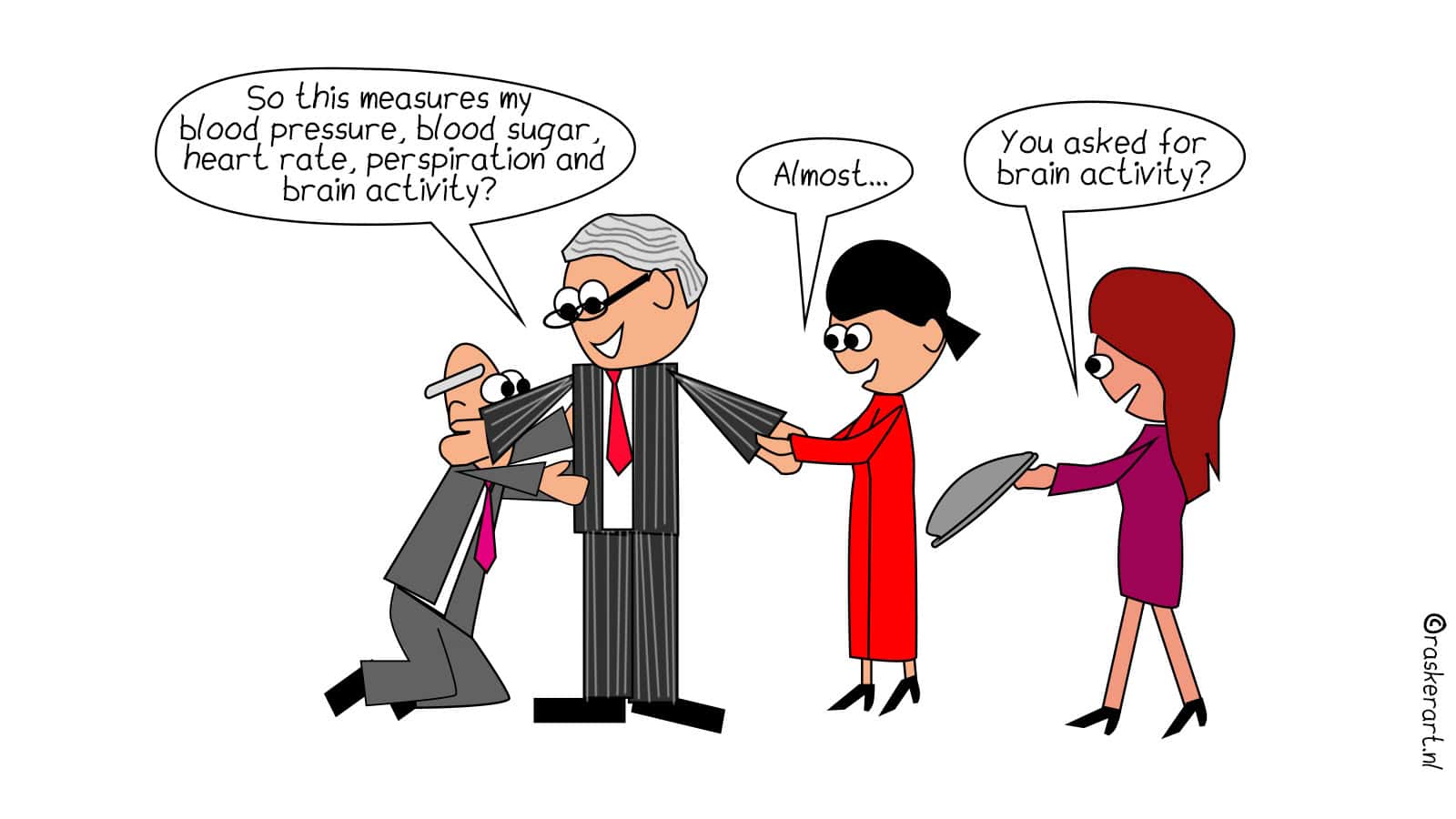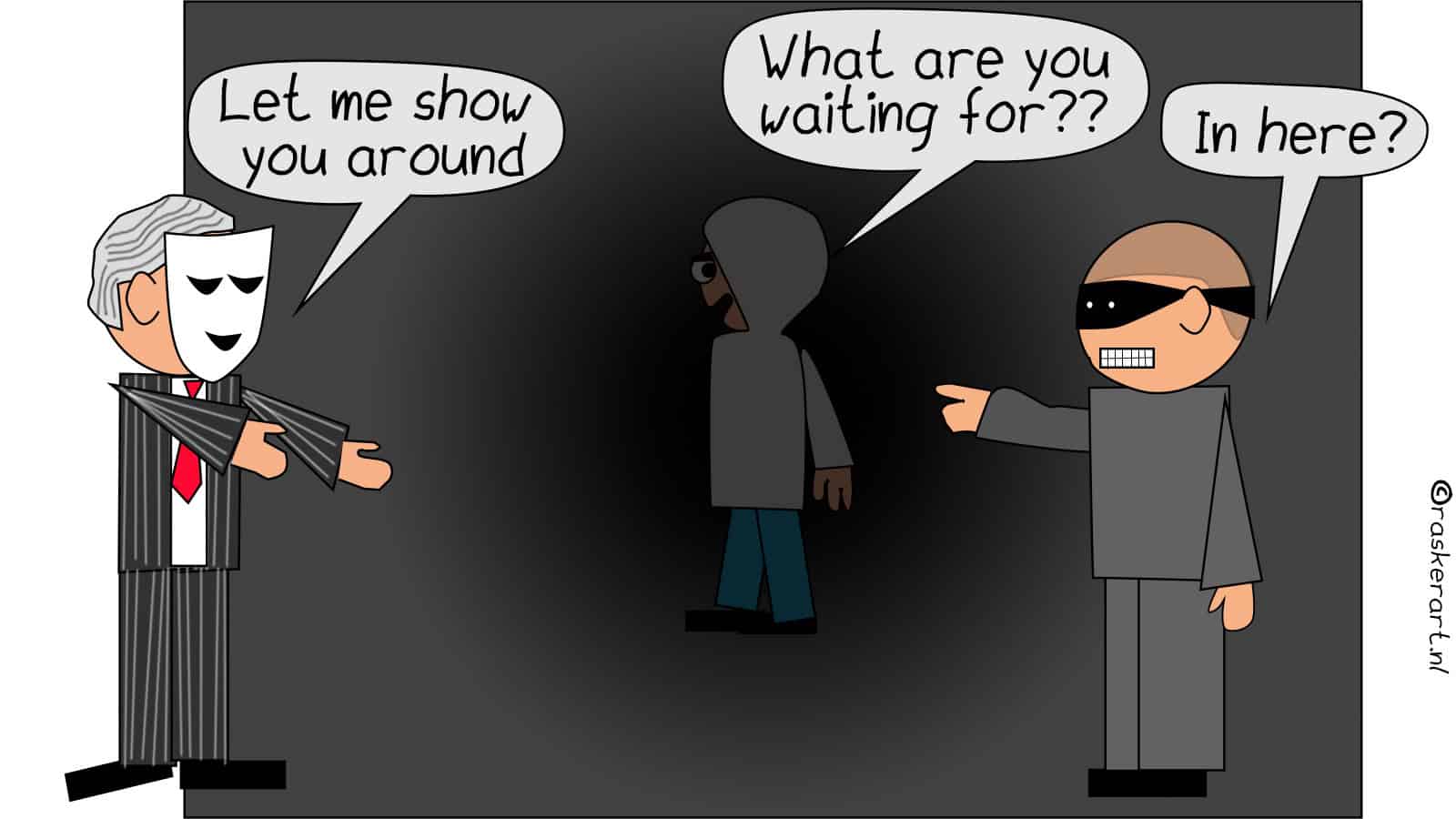
In our weekly recap on Sunday, we as editors look back at the past seven days. We do this at the suggestion of our cartoonist Albert Jan Rasker. He chooses a subject, makes a drawing, and we take it from there. What were we talking about in the newsroom? What other topics caught our eye? How do we actually work at Innovation Origins? Everything can come by. If you also want this newsletter straight to your inbox every Sunday morning, just subscribe here.
Albert Jan was most impressed this week by the article in which colleague Paul Smits explains what is needed to guarantee secure data communication even in the age of quantum computers. These supercomputers may not yet exist, but everyone knows that because of this development, our entire cyber security system will become as leaky as a sieve. For his article, Paul sought contact with Peter Schwabe, who is working on quantum-secure encryption on behalf of Radboud University in the Netherlands and the German Max Planck Institute. Reading the article, you begin to understand the complexity of this matter. Reading tip!
At the newsroom, last week was mainly about the end of summer. Back in the day, we used to talk about “the new reading season”; for us, it was more about several ambitious new series. We have already started with one: Jelmer Visser currently scores all the clicks with his articles on heat stress in Dutch city centers. Using the so-called EcoStress data from the American space agency NASA, we can now measure heat at street level throughout the Netherlands. In one of those places, it appears to have been over 55 degrees recently. Curious where? Read Jelmer’s articles here. And yes, we consider expanding this series on a European level.
Other series we have in preparation now include innovative farmers across Europe and how a university can nurture local roots without losing sight of the international playing field. More on that soon.
What else caught our eye in our posts?
If you want to reread it all, click here. But here are the most striking pieces, as far as we’re concerned:

Concerns about the shortage of medical personnel are increasing worldwide. But there is a solution in sight. Artificial intelligence, developed by a research group at TU Darmstadt, can support less qualified personnel with screenings. Even performing operations in collaboration with a remote expert is possible. Together with computer scientist Anirban Mukhopadhyay from TU Darmstadt, we are looking at the possibilities.

Tomorrow is the formal start of the new academic year all over the Netherlands. Universities and colleges have invited important people to lecture. We will see parades of professors in togas everywhere again, even if it is only on a picture in the newspaper. For Derek Jan Fikkers, this was reason to take a closer look at the blind spots of academia. Read the fourth and final part of his series on this topic here.

Student team Better/e is working on a battery whose main component is not lithium but iron. They see the iron redox flow battery as the future of energy storage on a large scale. Aafke Eppinga spoke to the team members and made this hopeful article about it. (By the way, speaking of hopeful batteries: be sure to read about Elestor’s plans for their hydrogen bromide battery).

The average production of plastic waste per person in the EU is 31 kilos. Only about 40 percent of this waste is recycled. The start-up traceless has discovered a solution to this problem: a technology for producing materials that look like plastic but break down into water and CO2. Just brilliant.








